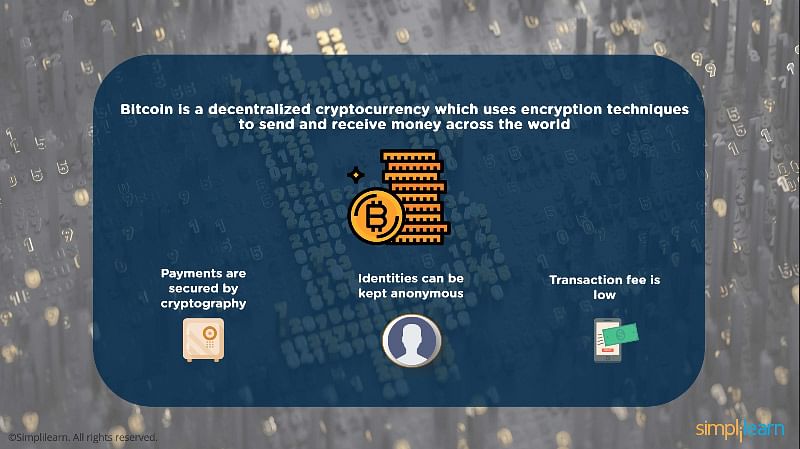Bitcoin vs. Ethereum: A Comprehensive Comparison
Of the more than 1,600 cryptocurrencies available today, Bitcoin and Ethereum consistently hold positions in the top three. Bitcoin, the pioneer of cryptocurrency, has established itself as digital gold, whereas Ethereum, with its robust platform for smart contracts and decentralized applications (dApps), posits itself as a more versatile alternative. As discussions about the future of cryptocurrencies evolve, the possibility of Ethereum surpassing Bitcoin in value looms large. This article breaks down the key differences and similarities between these two leading cryptocurrencies, providing insights into their functionalities and uses.
What is Cryptocurrency?
Cryptocurrency operates similarly to traditional currencies like the dollar or the Euro but stands apart due to its decentralized nature. Unlike fiat currencies managed by central banks or governments, cryptocurrencies like Bitcoin and Ethereum rely on blockchain technology. Blockchain is a public ledger that records transactions in chronologically organized blocks, ensuring transparency and security while allowing users to maintain anonymity.
What is Bitcoin?
Bitcoin emerged in 2009, credited to the pseudonymous figure Satoshi Nakamoto. This groundbreaking cryptocurrency allows users to transact with one another globally, using cryptography to secure transactions and safeguard the identities of the parties involved.
One of Bitcoin’s standout features is its low transaction fees compared to conventional banking systems, making it an attractive option for sending money. Bitcoin’s appeal is further enhanced by its capped supply, making it a deflationary asset in an economy often plagued by inflation.

What is Ethereum?
Launched in 2015 by programmer Vitalik Buterin, Ethereum takes the concept of cryptocurrency further by enabling the creation of decentralized applications (dApps) and smart contracts. Ether is the native currency of the Ethereum network, used not only for peer-to-peer transactions but also for operating dApps.
Unlike traditional applications that rely on centralized servers, dApps run on a peer-to-peer network, thereby enhancing security and eliminating single points of failure. Moreover, smart contracts allow automated transactions based on predefined conditions, paving the way for innovative solutions in various fields, including finance, real estate, and supply chain management.

Bitcoin vs. Ethereum: Key Comparisons
History
Bitcoin represents the genesis of cryptocurrencies, emerging from the need for an alternative to traditional fiat money. Ethereum, on the other hand, was developed as an extension of Bitcoin’s principles with added functionalities, specifically focused on facilitating smart contracts and dApps.
Concepts
-
Bitcoin is primarily a peer-to-peer currency designed for transactions. It offers a reliable method to exchange value without relying on centralized authorities.
- Ethereum not only facilitates peer-to-peer payments but also serves as a platform for executing smart contracts and deploying decentralized applications, thereby broadening its utility beyond mere currency.
Mining and Consensus Mechanisms
Both Bitcoin and Ethereum initially utilized the proof-of-work (PoW) consensus model, where miners solve complex mathematical puzzles to validate transactions. However, Ethereum is transitioning towards a proof-of-stake (PoS) model, which will allow users to validate transactions based on the number of coins they hold. This shift is expected to enhance scalability and energy efficiency within the Ethereum network.
In Bitcoin, miners receive a reward of 6.25 bitcoins for each successfully mined block, while Ethereum miners or validators earn 3 ethers per block, maintaining a stable reward rather than halving as seen in Bitcoin.
Fees
Transaction fees are handled differently in both cryptocurrencies. Bitcoin transaction fees are optional; while higher fees can expedite transactions, they are not mandatory. Conversely, Ethereum requires users to pay a fee in ether for every transaction, termed ‘gas’, which compensates for the computational power needed to process transactions on the Ethereum network.
Transaction Speed and Confirmation Time
The average time to add a new block to the Bitcoin blockchain is approximately 10 minutes, while Ethereum takes significantly less time, about 12 to 15 seconds. This faster confirmation time can make Ethereum more appealing for applications that require rapid transaction validation.
Hashing Algorithms
Security in cryptocurrencies is maintained through hashing algorithms. Bitcoin employs SHA-256, while Ethereum utilizes Ethash. These algorithms ensure the integrity of transactions and protect against fraudulent activities.
By the Numbers
Currently, Bitcoin has over 18 million coins in circulation, whereas Ethereum boasts a supply exceeding 118 million ethers. Despite Ethereum having greater coin availability, Bitcoin maintains a much higher market capitalization, valued at approximately $781 billion compared to Ethereum’s $368 billion. The daily transaction volume also illustrates the difference; Bitcoin handles around 260,000 transactions daily, while Ethereum processes about 1.2 million.
Bitcoin or Ethereum: Which One is Better?
Determining which cryptocurrency is superior ultimately depends on individual needs. Bitcoin excels as a store of value and a digital currency for transactions, while Ethereum’s capabilities in deploying smart contracts and decentralized applications position it as a versatile platform for a wider range of applications. The choice boils down to the user’s requirements and goals.
This evolving landscape of cryptocurrencies illustrates the broader potential of blockchain technology, inviting deeper exploration and understanding. While Bitcoin has paved the way, Ethereum’s innovations indicate a promising future for the entire cryptocurrency market.



